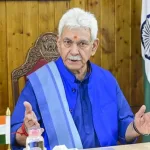Srinagar, Nov 13: The Health Department in Kashmir has failed to govern the prescription audit committees as there is no check on prescription audit norms (PACs) in hospitals across the valley.
In February 2020, the Health and Medical Education (H&ME) Department ordered the constitution of prescription audit committees at Government Medical Colleges, and district and sub-district level hospitals across the Union Territory. The committees were tasked to keep a check on the prescriptions given by the doctors and to contain the reported unethical practices by some healthcare professionals.
However, despite the constitution of the committees, health officials said nobody is monitoring them despite the orders issued by the health department from time to time.
Patients as well as attendants who visit the hospitals for treatment alleged that the healthcare professionals continue to resort to unethical practices which is affecting patient care.
“The situation is very bad. There is a lot of difference between the prescription of one doctor and another. A common man doesn’t know what the doctor writes on the prescription. This must be stopped and strict action should be taken against doctors violating the orders,” said Showkat Ahmad, a resident of Magam.
Not only unnecessary drugs and medicines but additional diagnostic tests are also prescribed to the patients which are unaffordable for poor patients, he said.
Showkat added, “Recently, I was suffering from stomach pain and visited a hospital. I was asked to undergo some diagnostic tests which were later rejected by another doctor.”
Similar complaints continue to pour in hospitals and the health department wherein patients have raised a hue and cry over the lack of prescription audit.
A senior consultant at J&K Health Department said that putting hospital administrators and medical officers in PACs is a wrong decision.
“It is absolutely a wrong decision as they have not put consultants, specialists or those senior doctors (in PACs) who really prescribe medicines to patients in hospitals,” he said, adding, “I have seen many doctors prescribing unnecessary medicines. It is important to write a good company or brand and whatever is relevant.”
The problem is more severe in rural hospitals that don’t have Janaushadhi Kendras and patients are bound to visit private medical shops leaving no option to them.
Earlier, the government constituted divisional and district-level PACs and directed the CMOs, and Medical Superintendents to nominate Nodal Officers to collect photocopies of one percent of prescriptions on a random daily basis written by government doctors in OPDs.
However, officials said that even after passing of two years, the order hasn’t been followed and no prescription audit has been carried out for a long time which has given a free hand to pharma companies in the distribution of medicines to medical shops outside the hospital premises.
On February 02, 2023, the Directorate of Health Services Kashmir (DHDK) in an order warned the CMOs and Medical Superintendents to follow prescription audit norms or face action.
“Unnecessary diagnostic tests/procedures are prescribed and patients are referred to private clinics/specialists without requirement. Drugs are prescribed in contravention to the provision of the Drugs & Cosmetic Act & Regulations,” the order stated.
Notably, officials said the PACs were aimed to procure drugs from the generic stores of the government hospitals and ensure no unnecessary drugs would be prescribed.
The divisional Prescription Audit Committee was earlier tasked to prepare a comprehensive monthly report along with their recommendations.
However, the Spokesperson for the Directorate of Health Services Kashmir, Dr Mir Mushtaq said that directions have been passed on to all Chief Medical Officers, Medical Superintendents and Block Medical Officers to ensure that there are regular inspections and audits.
“Prescriptions are done on a regular basis and if somebody is found not following the orders, we will take strict action against the erring officials,” he said.
Mir said that prescription audit is a good practice meant for the larger interest of patient care and there is an eye on what is happening in and around the hospitals.
“We have also advised the doctors to write the prescriptions clearly and properly so that everyone whether a patient or pharmacist is able to read it,” he added.





